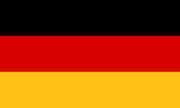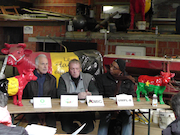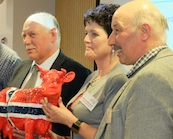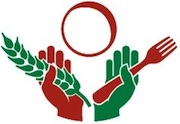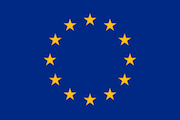EMB Newsletter May 2016
Newsletter as PDF
Contact
EMB - European Milk Board asbl
Rue de la Loi 155
B-1040 Bruxelles
Phone: +32 - 2808 - 1935
Fax: +32 - 2808 - 8265
Dear dairy farmers and interested parties,
At their spring Members' Assembly in Brussels, EMB milk producers appointed the existing Executive Committee to another term in office. This is an important signal - especially in light of the difficult market situation - for the EMB to consistently keep at its efforts in favour of farmers. The problematic prices all across the EU were the main topic at the two-day meeting, clearly showing that the milk market continues to remain in an imbalanced state in numerous countries. Words of the representative from Lithuania: Our milk is being sold at prices between 8 and 16 cents!
This is not breaking news: There is too much milk on the European market but production continues to increase in most countries. The participants at the Members' Assembly all agreed that the decisions of the Agriculture Council on March 14 about voluntary production cuts should be implemented immediately. The potential functional modalities of a voluntary renunciation mechanism were analysed in detail during the Member's Assembly together with two external experts. A representative from the Directorate General for Agriculture presented the Commission's point of which, of course, was quite optimistic.
The explanations provided by an advisor to the French Agriculture Minister revealed a very interesting perspective on the issue of volume regulation - something that was pushed for by France during the Agriculture Council. The French contribution about production cuts was very favourably received by the Assembly, which unanimously agreed that measures taken on a voluntary basis will not to be enough to address the issue of overproduction. Nonetheless, there is some slow change...
The participants also welcomed the positive change in the position of the German government with respect to capping. German state ministers clearly stated their support for production cuts in a decree. The German government has finally given up its inflexibility! More detailed information about the favourable vote by German agriculture ministers can be found in this edition.
I would like to conclude with some very encouraging news about our members! The Norwegian association Bondesolidaritet was unanimously welcomed to the EMB ranks. We are very pleased to have our highly active Norwegian colleagues on board. Welcome Bondesolidaritet!
Boris Gondouin, EMB advisory board member and president of APLI France
German state agriculture ministers take a clear step towards volume reduction
Must - Can - Should Europe feed Africa?
Bondesolidaritet – new EMB member from Norway
Tour of European milk producer organisations in the West of France
Switzerland: We demand a shift in agricultural policy!
News from Brusssels
Impressum
European Milk Board asbl
Rue de la Loi 155
B-1040 Bruxelles
Phone: +32 2808 1935
Fax: +32 2808 8265
E-Mail: office@europeanmilkboard.org
Website: http://www.europeanmilkboard.org

